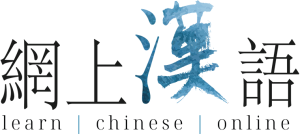Analysis of text n°4
Click to open.
Study the text and pay great attention to the explanations. Write down words and phrases that are new to you. Make a list in English and find the words / expressions in Chinese characters orally and then in writing (Chinese characters).
When you have mastered the new spoken and written vocabulary from English to Chinese, it is good to come back to the text to train the listening again: listen to the text as many times as necessary to understand it without error.
Same principle for writing: you must read the text, aloud ideally, understanding it without a hitch.
老朋友
Lǎo péngyǒu
An old friend
谢飞是我在中国认识的老朋友,他是北京人,是北京一家医院的一名医生,他学习的是中医,现在的工作是西医。今年三十岁。他人好,个子很高,很喜欢说话,会说英文和日文,有很多朋友。在中国,他会开车和我们去买东西,吃饭,看电影。
Xiè Fēi shì wǒ zài Zhōngguó rènshi de lǎo péngyǒu, tā shì Běijīngrén, shì Běijīng yī jiā yīyuàn de yī míng yīshēng, tā xuéxí de shì zhōngyī, xiànzài de gōngzuò shì xīyī. Jīnnián sānshí suì. Tā rén hǎo, gèzi hěn gāo, hěn xǐhuān shuōhuà, huì shuō yīngwén hé rìwén, yǒu hěn duō péngyou. Zài Zhōngguó, tā huì kāichē hé wǒmen qù mǎi dōngxī, chīfàn, kàn diànyǐng.
Xie Fei is an old friend I met in Beijing. He is Pekingese. He's a doctor from a Beijing hospital. He studied traditional Chinese medicine. He is currently working as a western medicine physician. He is 30 years old. He's a good person. He is tall and likes to talk a lot. He can speak English and Japanese and has a lot of friends. In China, he drives us to shop, eat and watch movies together.
- In China, very few doctors have their private practices. The vast majority work in a hospital. There is also no concept of an attending physician or family physician.
- 中医 zhōngyī designates both Chinese medicine and the physician practicing Chinese medicine. When we talk about Chinese medicine, the Chinese think more of pharmacopoeia than acupuncture. They are as scared of needles as we are!
- As with 中医 zhōngyī, 西医 xīyī refers to physician or western medicine. It should be noted that in China, the training of a traditional medicine doctor also includes training in Western medicine. A traditional Chinese medicine doctor trained in China can therefore practice Western medicine as well as Western medicine. The two are very often used together.
- 他人好 typical expression to say that a person has a good character, especially in his relations with others.
- 个子 gèzi the size (height), for humans.
- 他会开车和我们去...: placing 开车 in front of the circumstantial complement 和我们 indicates that it is he who leads his friends. By writing 他会和我们开车去... we do not specify who is driving, only that the group is traveling by car.
他有一个日本女朋友,这个漂亮的小姐姐名叫王月,今年二十七岁,四年前在这里学习汉语,现在是学校的一名老师,喜欢看书,不说话的时候,有些冷冷的。他们有个猫,名叫小美,爱在桌子和椅子上睡觉。
Tā yǒu yī gè Rìběn nǚ péngyǒu, zhè gè piàoliang de xiǎo jiějiě míng jiào Wáng Yuè, jīnnián èrshíqī suì, sì nián qián zài zhèli xuéxí hànyǔ, xiànzài shì xuéxiào de yī míng lǎoshī, xǐhuān kànshū, bù shuōhuà de shíhou, yǒu xiē lěng lěng de. Tāmen yǒu gè māo, míng jiào xiǎo měi, ài zài zhuōzi hé yǐzi shàng shuìjiào.
He has a Japanese partner. This pretty young lady is called Wang Yue. She is 27 years old. Four years ago she was learning Chinese here and now she works as a teacher in a school. She likes reading. When she's not talking, she's a bit distant. They have a cat named Xiaomei who likes to sleep on tables and chairs.
- 这个漂亮的小姐姐 in China, the terms of family members are often used to refer to people.
- 有些冷冷的 literally "to have a few (attitudes) a little cold". Behind 的 is implied something vague, but which refers to the attitude or the temperament.冷 is doubled to reduce its meaning.
- 他们有个猫 the number "one" 一 is often omitted (他们有一个猫).
